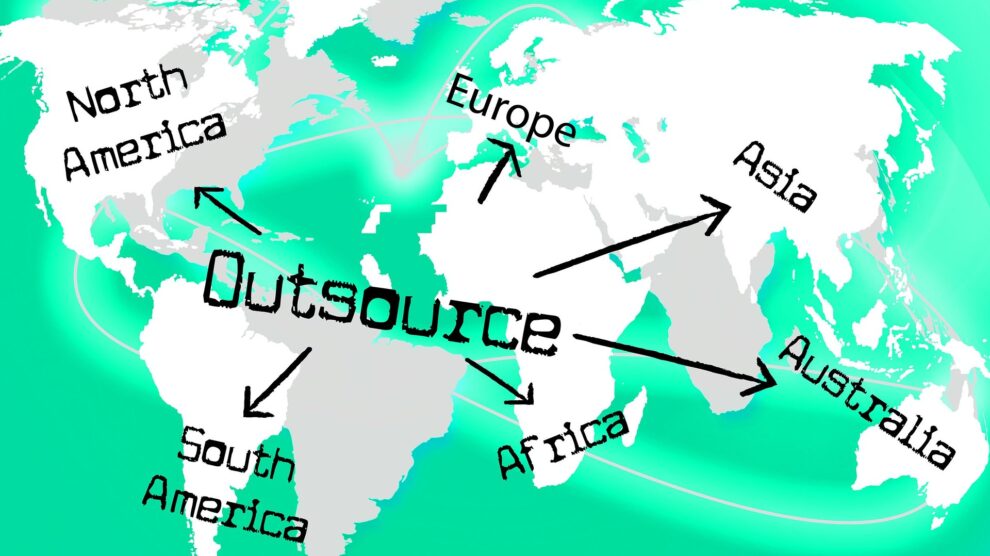With the rise of the pandemic, businesses involved in the logistic domain have to adapt their business processes and strategies to a new reality. Logistics and transportation software solutions are the keys to enhance operations and cost-efficiency. How to build and implement the solution into your organization? Should you hire an in-house team or outsource it to a software development company? Find the answers to the questions in our article.
Logistics Software Solutions: Types and Meaning
Technology trends continue to influence logistics and supply chain processes by changing them altogether. Multiple studies report that such technology innovations as IoT will accelerate the logistics and transportation industry’s operational efficiency. So, what’s logistics software? This type of software deals with the automation of logistics management processes, ranging from purchasing materials to delivering products to end-users. Transportation and logistics software matters for businesses because it solves numerous challenges, including:
- Automation of manual tasks
- Transparency of operations
- Reduced expenses
- Enhanced quality with fewer mistakes
So, what are the essential types of logistics software used by businesses?
Supply Chain Management Software
Supply chain management solutions are used to execute supply chain transactions, manage relationships with suppliers, and control all the related business processes. Modern supply chain software automates business processes that cover the following aspects:
- managing supplier database
- contract price management
- ordering products and services
- purchase orders processing
- making receipts for materials and services
- invoices processing
Under COVID-19 influence, many businesses have to adapt their supply chain strategies to the evolving market changes. That’s why supply chain software is becoming more crucial for many companies than ever before.
Inventory Management Software
This type of logistics software helps in tracking materials, goods, and other items within the organization, no matter what industry it operates in, be it retail, hospitality, transportation, healthcare, etc. By reducing risks of over-stocking and stock-outs, inventory management solutions grant visibility into the inventory process and significantly improve sales cycles, allowing organizations to regulate the optimal number of items required for their operation. For example, retailers use inventory management software to maintain the number of goods to fulfill orders.
Transportation Management Systems
TMSs monitor vehicles in real-time to plan and optimize their routes and other transportation processes by collecting data and GPS. They cover various aspects of the transportation industry, including fuel management, fleet maintenance, optimizing routes with the weather and traffic conditions. The implementation of a TMS into your business will help you improve visibility, streamline operations, as well as reduce human errors. With the COVID-19 pandemics, the telematics industry has to adjust to the new market demands. For instance, one of the latest technology trends is ensuring drivers’ safety through telematics solutions.
Advantages of Outsourcing Logistics Development
Save Time and Financial Resources
Outsourcing transportation and logistics software development is more cost-effective and less time-consuming. Why? Firstly, if you decide to develop it with your in-house labor resources, you will have to deal with hiring and onboarding your project team, which may take a considerable time, delaying the software release. In case you need to implement logistics software to your business process as fast as possible, turning to a logistics software development outsourcing company would be the best option.
Secondly, by hiring an in-house development team, you’ll have to incur expenses related to such administrative things as paying salaries, onboarding, vacancies, sick leaves, etc. It’s a development outsourcing company that is fully responsible for such things, while you pay only for the time and/or materials.
Receive a Custom Logistics Solution
By outsourcing your logistics software development project, you can receive a bespoke solution that will meet your particular business needs and requirements. Instead of buying an out-of-the-box solution, you have an opportunity to deal with industry experts that will create a unique solution based on your business specifics.
Get Access to Domain Experts
Finally, a development outsourcing company with expertise in logistics has highly qualified professionals at hand. It’s easier to get access to their expertise through an outsourcing company, rather than looking for them on your own. It’s also less risky; you’ll get a final product of poor quality because reliable outsourcing companies pay much attention to their market reputation.
How to Choose a Logistics Outsourcing Company
Step 1. Decide on the Type of Software Outsourcing
There are three types of outsourcing options available – onshore, nearshore, and offshore. Onshore companies are based in your country or nearby countries, nearshore ones are located in close proximity with similar time zones, while offshore – in another country or continent with different time zones.
You can outsource to any of the three categories, still, you need to understand that onshore and nearshore companies may charge a bit more than offshore ones. However, pricing shouldn’t always be a deciding factor when choosing an outsourcing partner. No matter what option you would choose, ensure that the development team is competent enough to deliver a quality product.
Step 2. Define an Engagement Model that Works for You
Most outsourcing software development companies offer several engagement models based on clients’ needs. Among them are staff augmentation and dedicated project teams. The former works best for those who have in-house staff but lack some specialists required to fulfill the project needs. The latter is better for a long-term project with no staff available in your organization. Anyway, before you define which engagement model is best for your organization, you need to assess your project needs and resources.
Step 3. Think Over the Key Requirements for Your Future Partner
When choosing your outsourcing logistics software partner, you should make your choice on certain requirements to compare different companies. It will help you make a more informed decision, so, be sure you have a list of requirements for potential partners. It all depends on your business needs and opportunities but make sure you include the basic things below:
- domain expertise
- pricing
- management and delivery techniques
- technology availability
After you make the list of requirements, you may choose one or two things that are more significant for you.
Step 4. Conduct a Comparison Analysis to Make the Best Possible Choice
Finally, based on your requirements, make a thorough comparative analysis of all the companies on your list. No matter what factor is crucial to your organization, remember that even a limited budget shouldn’t compromise on the transportation and logistics software quality.
Bottom Line
Thus, choosing between in-house development and outsourcing, you should weigh all pros and cons. Once you decide to hire an outsourcing partner, be sure you take into accounts everything you need to make the right choice. No matter what outsourcing company you would choose, you should keep in mind that the quality of your future solution depends on them.





